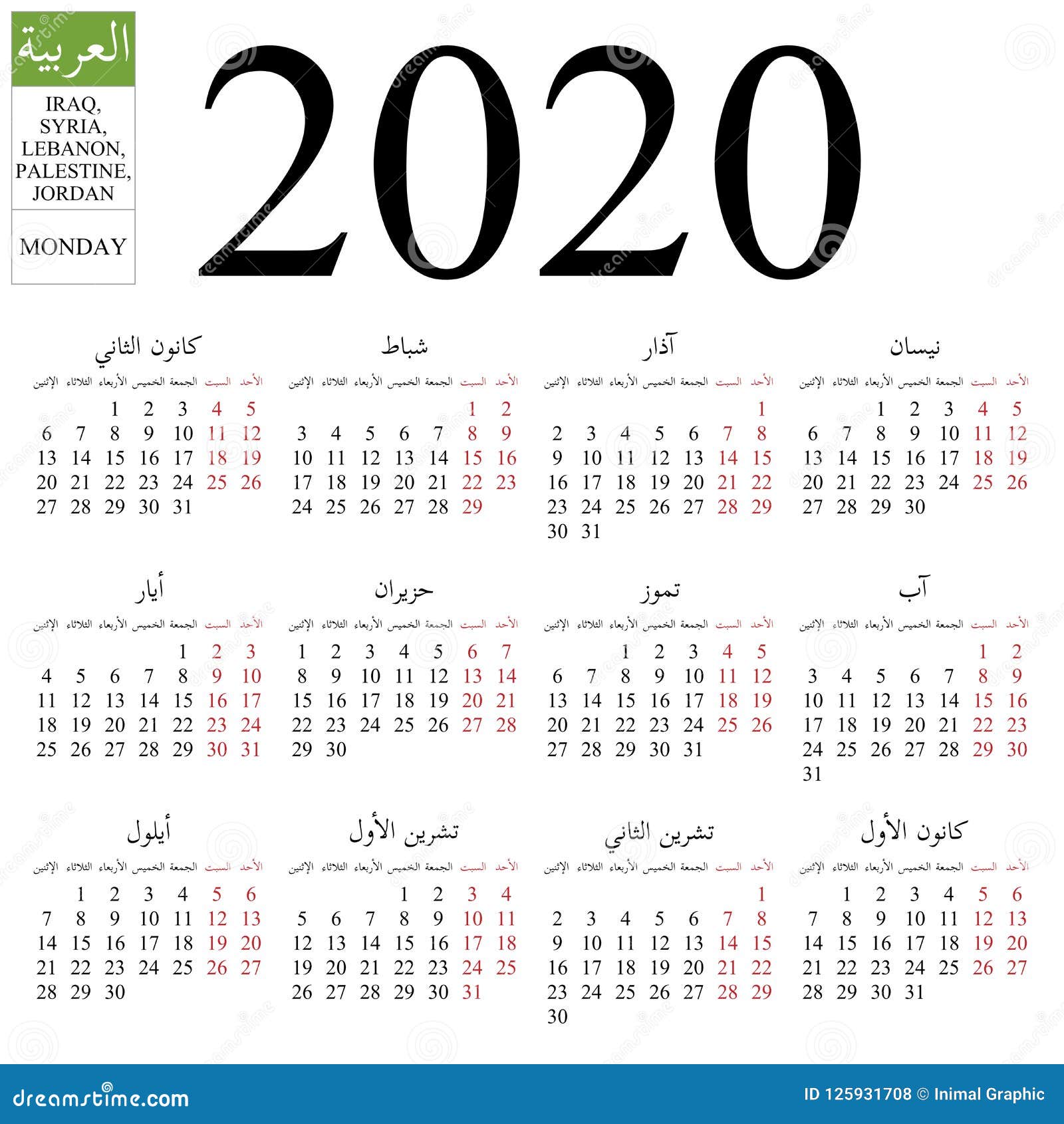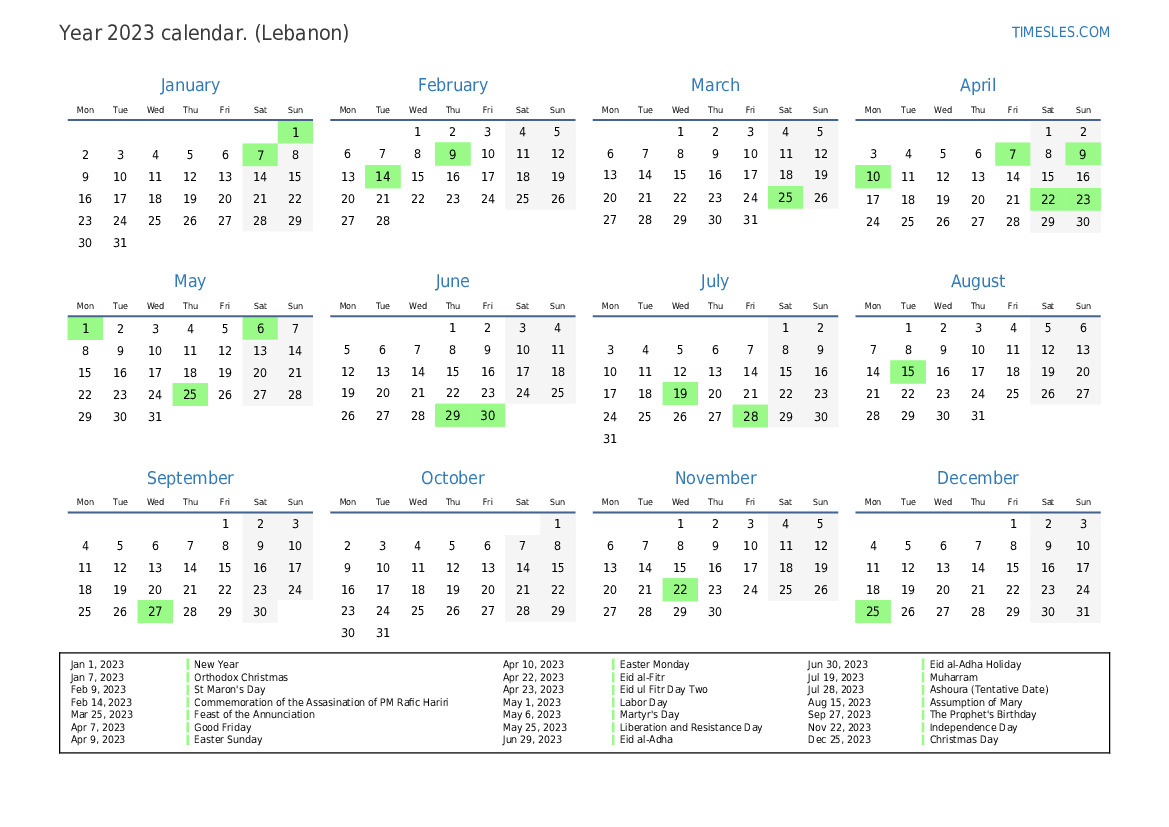Lebanese Calendar 2025: A Comprehensive Overview
Lebanese Calendar 2025: A Comprehensive Overview
Related Articles: Lebanese Calendar 2025: A Comprehensive Overview
- 2025 Virtual Calendar: The Ultimate Guide To A Seamless Time Management Experience
- 2025 NSW School Holidays Calendar: A Comprehensive Guide For Students And Parents
- Uta Calendar 2025: An In-Depth Exploration
- Waxahachie ISD Calendar 2025: A Comprehensive Overview
- Creating A Comprehensive Calendar For 2025 In Excel With Indian Holidays
Introduction
With enthusiasm, let’s navigate through the intriguing topic related to Lebanese Calendar 2025: A Comprehensive Overview. Let’s weave interesting information and offer fresh perspectives to the readers.
Table of Content
Video about Lebanese Calendar 2025: A Comprehensive Overview
Lebanese Calendar 2025: A Comprehensive Overview
Introduction
The Lebanese calendar is a unique and ancient system of timekeeping that has been used in Lebanon for centuries. It is based on the Gregorian calendar, but with some important modifications. The Lebanese calendar is used for both civil and religious purposes, and it is an important part of Lebanese culture.
History of the Lebanese Calendar
The Lebanese calendar is thought to have originated in the 6th century AD, during the reign of Emperor Justinian I. Justinian introduced a new calendar to the Byzantine Empire, which was based on the Julian calendar. The Julian calendar was in turn based on the Roman calendar, which was developed by Julius Caesar in 45 BC.
The Lebanese calendar was adopted by the Maronite Church in the 7th century AD. The Maronite Church is the largest Christian denomination in Lebanon, and it played a major role in the development of the Lebanese calendar.
Structure of the Lebanese Calendar
The Lebanese calendar is a solar calendar, which means that it is based on the Earth’s orbit around the Sun. The calendar has 12 months, each of which has 30 or 31 days. The months are named after the zodiac signs, and they are as follows:
- January: Capricorn
- February: Aquarius
- March: Pisces
- April: Aries
- May: Taurus
- June: Gemini
- July: Cancer
- August: Leo
- September: Virgo
- October: Libra
- November: Scorpio
- December: Sagittarius
The Lebanese calendar also has a number of holidays, which are listed below:
- New Year’s Day (January 1)
- Epiphany (January 6)
- Ash Wednesday (February)
- Good Friday (March or April)
- Easter Sunday (March or April)
- Ascension Day (May)
- Pentecost (May or June)
- Corpus Christi (June)
- Assumption of Mary (August 15)
- All Saints’ Day (November 1)
- Independence Day (November 22)
- Christmas Day (December 25)
Use of the Lebanese Calendar
The Lebanese calendar is used for both civil and religious purposes. It is the official calendar of the Lebanese government, and it is used for all official business. The calendar is also used by the Maronite Church, and it is the basis for the church’s liturgical year.
In addition to its official uses, the Lebanese calendar is also used by many Lebanese people in their daily lives. Many people use the calendar to keep track of appointments, birthdays, and other important dates. The calendar is also used to determine the dates of religious holidays and festivals.
The Lebanese Calendar in the 21st Century
The Lebanese calendar is a living and evolving system. It has been modified several times over the centuries to reflect changes in the way that people live and work. In the 21st century, the Lebanese calendar continues to be an important part of Lebanese culture. It is a reminder of the country’s rich history, and it is a valuable tool for both civil and religious life.
Conclusion
The Lebanese calendar is a unique and fascinating system of timekeeping. It is a testament to the rich history and culture of Lebanon. The calendar continues to be an important part of Lebanese life today, and it is likely to continue to be used for many years to come.







Closure
Thus, we hope this article has provided valuable insights into Lebanese Calendar 2025: A Comprehensive Overview. We hope you find this article informative and beneficial. See you in our next article!